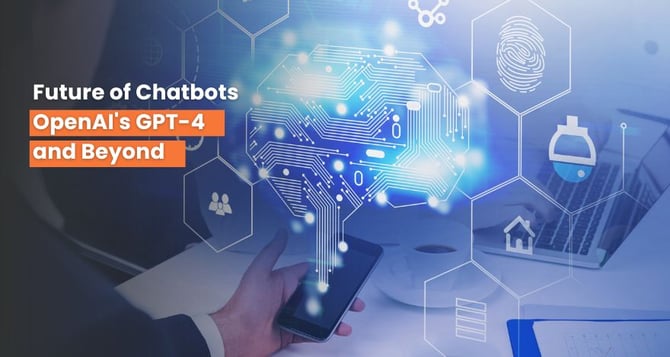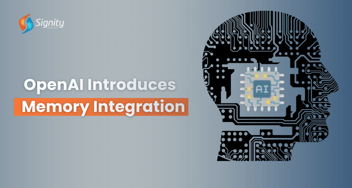The Future of Chatbots: Exploring OpenAI's GPT-4 and Beyond
Explore the future of chatbots with OpenAI's GPT-4 and beyond. From text to multimodal, these models offer personalized, empathetic, and context-aware interactions, revolutionizing user experiences in various fields. Exciting possibilities await in this transformative field!

Chatbots have come a long way in recent years, thanks to advancements in Large Language Modal (LLM) and artificial intelligence (AI). Among the pioneers in this field is OpenAI, which has consistently pushed the boundaries of what chatbots can do. In this article, we'll explore the future of chatbots, focusing on OpenAI's GPT-4 and beyond, and provide code snippets to demonstrate their capabilities.
The Evolution of Chatbots
Chatbots have evolved from basic rule-based systems to sophisticated AI-driven conversational agents. OpenAI's GPT (Generative Pre-trained Transformer) models have played a pivotal role in this evolution.
Get Future-Ready AI Solutions for Your Business
Collaborate with us to leverage AI for innovation, efficiency, and sustainable business growth!
GPT-3: A Game Changer
OpenAI's GPT-3, released in June 2020, marked a significant milestone in the development of chatbots. With 175 billion parameters, it demonstrated remarkable language understanding and generation capabilities. Developers worldwide started building innovative applications, from chatbots that answer questions to content generators and virtual assistants.

GPT-4: Taking It Further
OpenAI didn't stop at GPT-3. The release of GPT-4 promised even more impressive capabilities. With improved contextual understanding and fine-tuned parameters, it takes conversational AI to the next level.

Beyond GPT-4: The Future of Chatbots
As technology advances, the future of chatbots holds exciting possibilities:
-
Multimodal Capabilities
Future chatbots will not be limited to text-based interactions. They will incorporate images, videos, and other multimedia elements into conversations, making them more engaging and interactive.

-
Contextual Understanding
Chatbots will become even better at understanding context. They will remember past interactions, user preferences, and nuances, leading to more personalized and natural conversations.

-
Enhanced Emotional Intelligence
Future chatbots will recognize and respond to human emotions more effectively. They will provide emotional support and empathy when needed.

Conclusion
The future of chatbots is promising, with OpenAI's GPT-4 and beyond leading the way. These OpenAI models, armed with massive amounts of data and sophisticated algorithms, are set to transform the way we interact with technology.
As chatbots become more multimodal, context-aware, and emotionally intelligent, they will find applications in healthcare, customer service, education, and more, revolutionizing the user experience.
So, whether you're a ChatGPT developer looking to create the next generation of chatbots or a user eager to experience more natural and helpful conversations, the future of chatbots holds something exciting for everyone. Stay tuned for further developments in this ever-evolving field!













